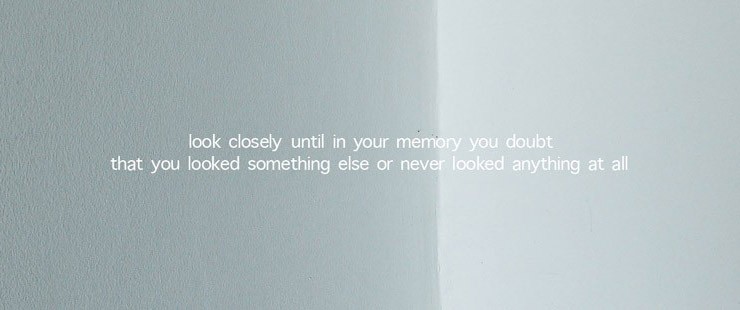Gianluca Codeghini – Where favourite noises are still lost

Con Where favourite noises are still lost Codeghini presenta un progetto di mostra “disturbata”, tanto casuale – quanto preordinata – che questa incertezza appare un’aggressione al reale progettata con sistematica ossessività.
Comunicato stampa
Gianluca Codeghini prosegue una ricerca artistica cominciata negli anni novanta. Fin dai suoi primi progetti Keep out of reach (1992), The pathology of well-being (1996) o come nella recente Piecemeal (2009) innesca concetti e processi in cui la relazione con e tra il pubblico diventa fondamentale per produrre cortocircuiti, tensioni e provocazioni discrete...
Con Where favourite noises are still lost Codeghini presenta un progetto di mostra "disturbata", tanto casuale - quanto preordinata - che questa incertezza appare un'aggressione al reale progettata con sistematica ossessività.
Lo sguardo alterna analisi e stupore: con un occhio aperto e l'altro serrato si avvicina in maniera analitica alle cose, li avvicenda per una verifica o per una meraviglia, trascende in altro quando a volte li spalanca o li chiude.
Nella penombra in cui è lasciato lo spazio le opere esposte ricevono una luce indiretta, ed è in questa condizione tra presenza e assenza, chiaro e scuro, on e off, che l'immagine fa finta di esistere... In questo interstizio si dispiegano le differenze e si moltiplica la ripetizione della performance sonora "A slow movement between my fingers", un brusio dialogico, ma anche uno schiamazzo, un crescendo acustico, una spinta che tende l'orecchio all'occhio.
Allo stesso modo, dalle formazioni discorsive di "Didactic lapse" emerge un'architettura di rotture, permutazioni e trasformazioni acustiche, in cui l'oggetto e il suo discorso sono messi contemporaneamente all'angolo e al loro posto. La mappa sonora rimodella la scena e le opere, come anche in "One pose after the other" una videoproiezione sulla vetrina che guarda la strada, sono dispositivi che palesano una enigmatica dinamica verso altro, pensieri che si incuneano nei loro stessi ingranaggi al punto tale da lasciare nella memoria il dubbio di aver pensato altro o di non aver pensato affatto.
--------------------------
Gianluca Codeghini continues his artistic research which he began in the 90s. Since his earliest projects Keep out of reach (1992), The pathology of well-being (1996) or in his more recent piece Piecemeal (2009) he triggers concepts and processes where the relationship with and among the public becomes fundamental for creating short circuits, tensions and discrete provocations...
With Where favorite noises are still lost Codeghini presents a disturbed project which is both casual and preordained, and this uncertainty seems to be an aggression against reality planned with systemic obsessiveness.
His vision alternates analysis and surprise: with one eye open and the other closed he approaches things in an analytical way, verification alternates with marvel, transcending into something else when he opens them wide or shuts them tight.
In the dimness the works on show are illuminated indirectly, and in this limbo between presence and absence, light and dark, on and off, the images pretend to exist... In this crawlspace the differences are multiplied as are the repetitions in the piece "A slow movement between my fingers", a humming dialogue, a clamor, an acoustic crescendo, moving from the ear to the eye.
In the same way, the discursive "Didactic lapse" reveals its structure made of acoustic ruptures, exchanges and transformations, where the object and its meaning are simultaneously at an angle to each other and in their own place. The sound map remodels the scene and the works, like in "One pose after the other", a video on a window overlooking the street, they are devices which reveal an enigmatic dynamic towards the other, thoughts which are wedged in their mechanisms to the point that they leave us with the uncertainty of whether we thought of something else or that we didnt think at all.



